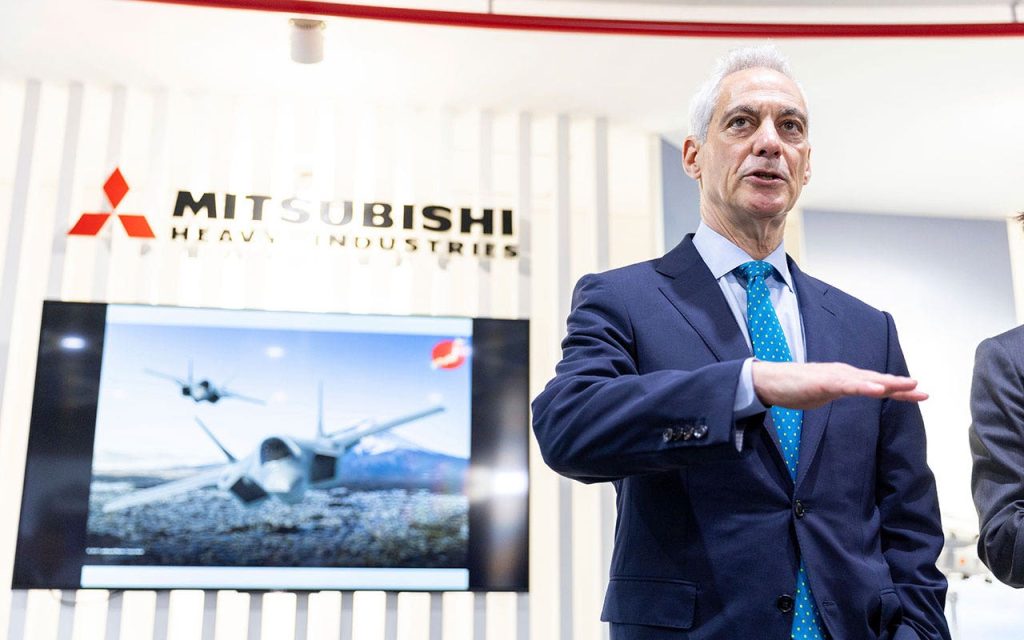US Ambassador Rahm Emanuel has called on Japan to increase its involvement in weapon development, production, and supply in order to bolster security. He emphasized the necessity of stronger defense industry cooperation between the U.S. and Japan, stating that the U.S. alone cannot supply all democracies. Japan is now looking into opportunities for co-licensing, co-production, and co-development of military technologies with the U.S. This push for increased defense industry cooperation comes amid ongoing conflict in regions such as Ukraine and Gaza.
During his visit to a Mitsubishi Heavy Industries F-35 fighter jet factory, Ambassador Emanuel highlighted the importance of Japan taking on a greater role in weapon development. He emphasized the need for the allies to work together to enhance collective security. Prime Minister Fumio Kishida’s recent trip to Washington and meeting with President Joe Biden also highlighted Japan’s commitment to being a reliable partner, particularly in defense cooperation. The visit follows Japan’s adoption of a national security strategy in 2022 which includes accelerating military buildup and increasing defense budget in response to threats from China, North Korea, and Russia.
Under Japan’s national security strategy adopted in 2022, the country is increasing its defense budget and military capabilities. Japan has pledged to acquire counter-strike capability and has purchased 400 Tomahawk long-range cruise missiles, marking a departure from its postwar pacifist principles. The easing of arms export rules in Japan has allowed for the sale of lethal weapons to countries from which they were licensed. This has enabled Japan to provide Japanese-made PAC-3 missiles to the U.S. for replacing those sent by Washington to Ukraine. The changes in Japan’s arms export rules have also allowed for the overseas sale of a fighter jet developed with Britain and Italy.
In the face of heightened security threats following Russia’s invasion of Ukraine and the Hamas attack on Israel, many U.S. allies have been increasing their defense budgets and capabilities. Ambassador Emanuel emphasized that Japan cannot afford to remain on the sidelines when it comes to meeting obligations of security, defense, and deterrence. Mitsubishi Heavy’s F-35 final assembly and checkout plant near Nagoya produces six of Lockheed Martin Corp.’s F-35 jets a year and provides maintenance work for those deployed in Japan. The F-35 is seen as a crucial asset in collective defense and deterrence industries.
The potential areas of cooperation between the U.S. and Japan will be discussed at a military industry council and reported to foreign and defense ministers in both countries. Ambassador Emanuel sees Japan’s industrial capability and engineering expertise as valuable assets to enhance the alliance’s capabilities and security. By working together on developing, producing, and supplying weapons, the U.S. and Japan aim to strengthen their defense industry cooperation and bolster collective security. Japan’s increased involvement in military technologies is seen as a key step in enhancing security in the face of evolving global threats.


